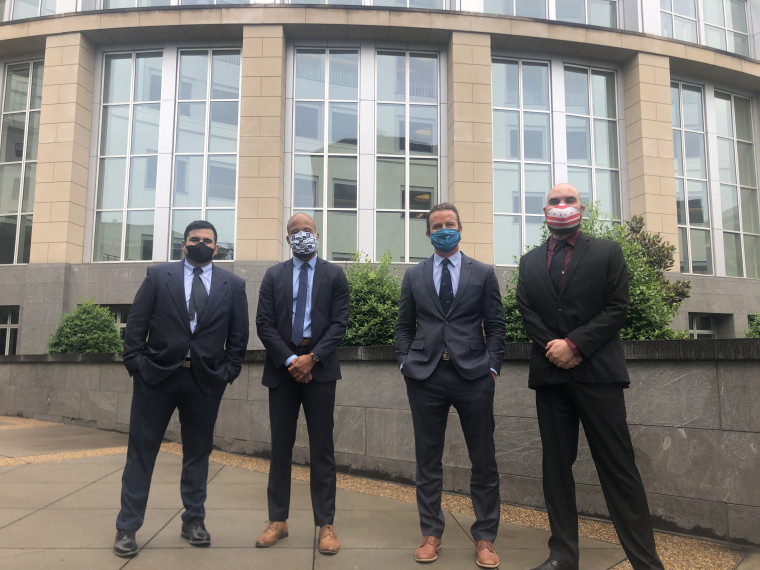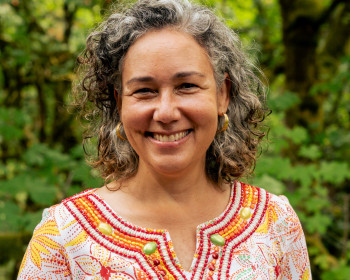Alum Works to Pass First Emergency COVID Workplace Standards in Virginia
Open gallery

Jason Yarashes ’12, lead attorney and program coordinator of the Virginia Justice Project for Farm and Immigrant Workers at the Legal Aid Justice Center, led the charge to get Virginia to pass the first COVID-19 enforceable emergency workplace standard in the United States. Other states, including Oregon, are using this development to try and push their respective states and localities to do the same.
According to an article published by NPR, “[Virginia’s] new emergency temporary standards obligate businesses to give out personal protective equipment, mandate social distancing guidelines and put in place response plans and training for workers, among other measures. Companies risk up to $130,000 in penalties if they are found to be in violation of the guidelines.”
“Virginia is traditionally the worst labor rights state,” stated Yarashes. “So to get the measure passed here and become an example to other states is huge. We really commend Virginia for stepping up, and being the first state in the country to pass these standards to protect workers.”
The standards are especially important for essential workers, many of whom are immigrants. “There was a significant lack of health and safety in the workplace, particularly for essential workers and migrant farmworkers, who are the folks that are being required to go into the workplace to keep the economy alive,” stated Yarashes. “At the same time, the federal government was not doing its job and OSHA was just issuing recommendations. There were no enforceable standards on the books where workers would feel comfortable speaking up against their company.”
Yarashes and his team collaborated with community partners to build a collection of stories from workers that had been calling about the lack of safety precautions. “It’s really difficult to organize people, particularly during a pandemic where it’s tough to make connections with people,” stated Yarashes. “But the communities gathered together and the organizing was happening on opposite sides of the state in the Shenandoah Valley and on the Eastern Shore. These are pretty remote rural areas, but there are big concentrations of poultry plants there, which have been sort of hotbeds of coronavirus activity.”
In April, Yarashes and his team sent a petition to the governor and all the relevant agencies in Virginia, asking for enforceable standards. After sending the petition the team organized socially distant car rallies in front of poultry plants in the state to raise awareness, and it paid off. “On that same day, Governor Northam held a press conference and said he was working with the CDC to get testing done,” Yarashes stated. “CDC tested everybody at the poultry plants and it showed that it was really high infection rates per capita; it was some of the highest in the country.”
In late May the Virginia governor issued an executive order directing the State Department of Labor to create enforceable emergency workplace standards. “The Virginia Department of Labor drafted the standards and there was a short comment period because it was an emergency,” stated Yarashes. “The comment period was only 10 days but about 3000 comments were submitted.” The Virginia Safety and Health Codes Board in the then passed the standards in late July.
“The laws tend to exempt the folks that are the most vulnerable position: farmworkers, poultry workers, low wage workers, people of color, and that’s a really sad and historic trend and it’s continued today,” stated Yarashes. “But what happened in Virginia was the workers and the community members flipped that narrative. It was the rural workers, the poultry workers, the farmworkers that were speaking for this. They spoke out and ultimately provided protection for all the workers throughout Virginia throughout all industries.”
“We’ve had workers still calling in and complaining about workplace standards, but now there is an effective mechanism to do something about it,” stated Yarashes. “Now we’re actually able to make reports and have the government be able to respond to it and businesses are being held accountable.”
Law Communications is located in room 304 of Legal Research Center (LRC) on the law Campus.
MSC: 51
email jasbury@lclark.edu
voice 503-768-6605
Cell: 626-676-7923
Assistant Dean,
Communications and External Relations, Law School
Judy Asbury
Law Communications
Lewis & Clark Law School
10101 S. Terwilliger Boulevard MSC 51
Portland OR 97219

